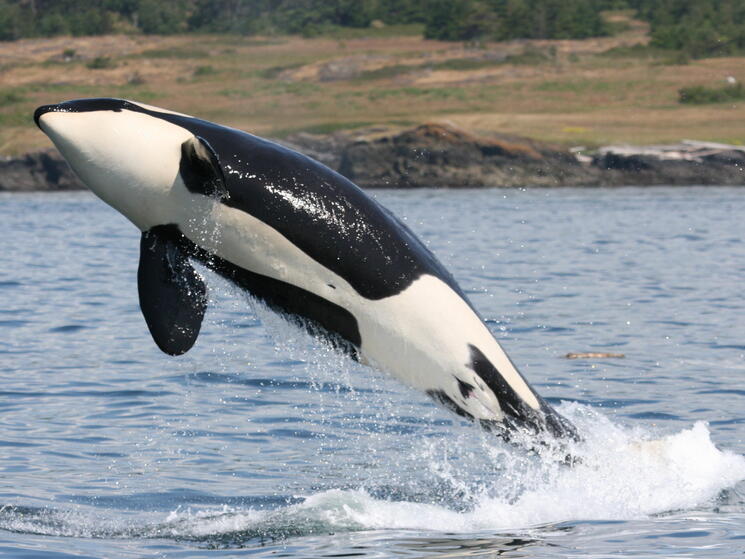A killer whale that washed up on the beach at Cadzand over the border in Zeeuws-Vlaanderen last weekend died as a result of a serious gum infection.
The animal, also named orca and belonging to the oceanic dolphin family, had not eaten for days, according to scientists from the universities of Utrecht and Wageningen, who carried out the autopsy. This showed that it had been suffering from various infections, including infections in the heart valves, reproductive organs and the brain lining.
"There were no food residues in the stomach," biologist Mardik Leopold told VRT Nws. "We only found a small plastic sheet, but that had no influence on the cause of death. The more than thirty meters long intestine was also empty. This orca had not eaten anything for days."
The orca's teeth were loose and rotting, and there was a lot of inflammation in the jaws and the teeth themselves, which likely made it really painful to eat.
Related News
- Animal welfare: EU countries call for ban on killing male chicks
- Killer whale dies after washing up on beach for the second time
Pathologists will continue their investigation to determine whether the various problems discovered at autopsy have the same cause or a number of causes. The problem may have led to — or certainly exacerbated — the gum infection which eventually killed the animal.
Although a sea creature, the dolphin is a mammal and has very similar physiology to other mammal species. While it is completely adapted to life underwater, the gravity that presses on an animal when stranded is very heavy, and has all kinds of consequences for circulation, breathing and therefore the overall survival chances, which makes beaching alive fatal.

